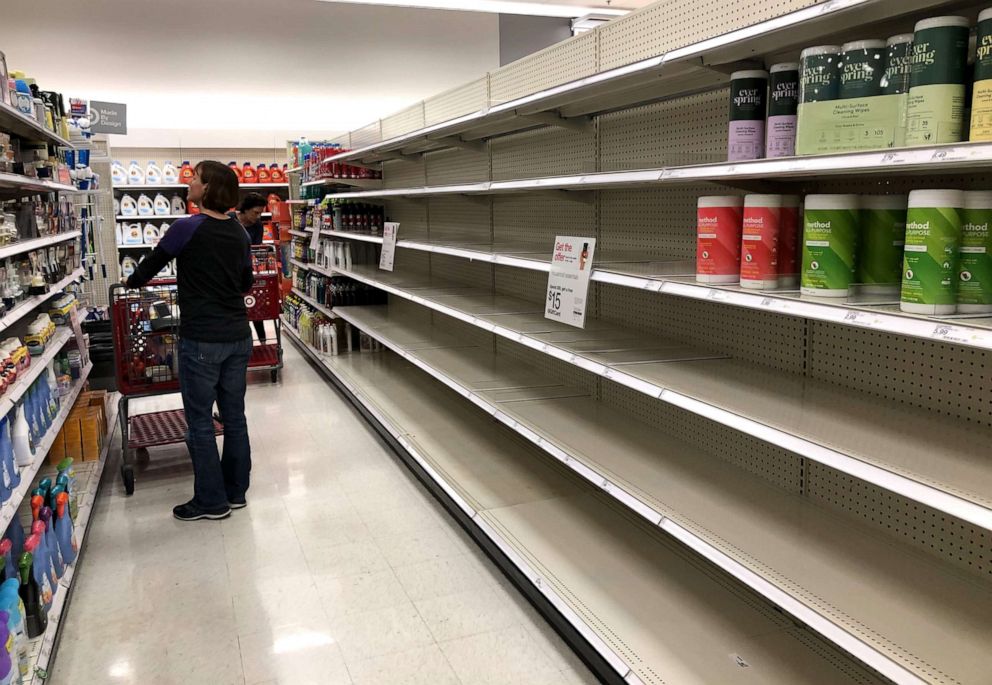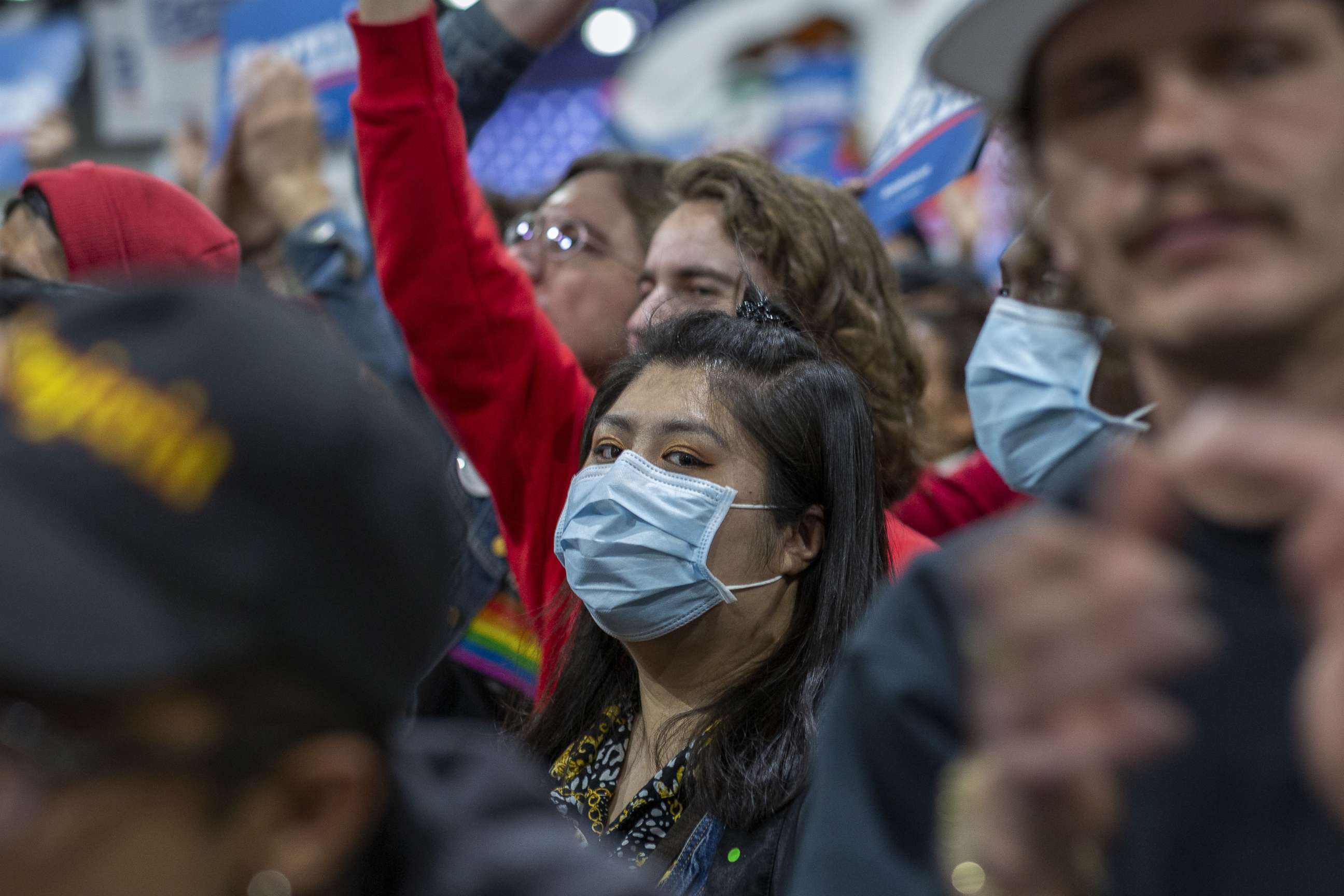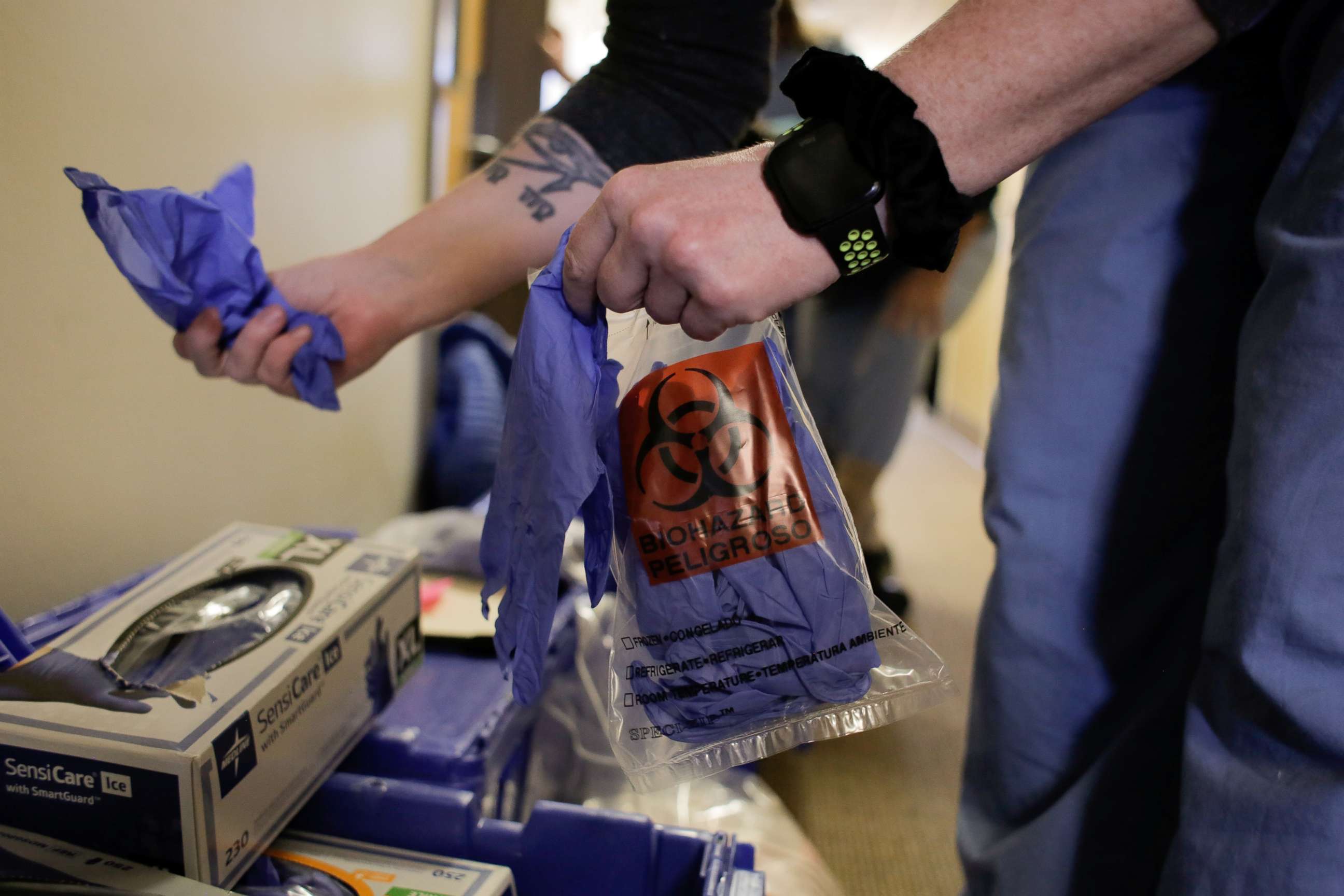How to deal with fear of novel coronavirus in the face of the unknown
"Anxiety spreads faster than the virus," said one expert.
With cases of confirmed novel coronavirus in the United States steadily increasing, and the Centers for Disease Control and Prevention instructing Americans to prepare for social disruptions, the uncertainty around COVID-19 has sparked anxiety and fear among the public.
"Anxiety spreads faster than the virus," Catherine Belling, associate professor of Medical Education at Northwestern's Feinberg School of Medicine, said in an interview with ABC News.
Belling, who studies the role of fear and uncertainty in the medical sphere, said it is natural to feel worried about the novel coronavirus, especially "when our experts are not completely sure and don't know exactly what will happen."
"There is a difference, however, between anxiety, worry, fear and panic," she said. "Panic is an irrational fear reaction that, by definition, your body's reaction and adrenaline response take over from your ability to actually rationally evaluate the situation. If you are capable of avoiding panic, that's good."
Carnegie Mellon Professor of Public Policy and Strategy Baruch Fischhoff, who studies how people evaluate risk and make decisions, agreed.
"From a risk analysis perspective, some fear and some worry is legitimate, since the virus is still poorly understood and we don't exactly know what the health effects are or what the social effects are going to be," he said.

In the case of a virus like COVID-19, experts say it's challenging to evaluate risk or compare it to other more familiar forms of danger, since the threat is so new.
"Many more people die from the flu or motor vehicle accidents, but objectively and subjectively we don't know the bounds of the novel coronavirus risks, which adds to the concerns with this new virus," Fischhoff said.
To soothe worries, people search for answers -- but ominous signals such as rising death counts, strong economic impacts, major event cancelations, school closures and quarantines bias people toward experiencing fear, explained Paul Slovic, a University of Oregon professor specializing in risk perception.
"The main way we relate to information about our world is through feelings and gut intuitions," Slovic said.
"We are not good at numbers, we are good at stories," Belling said. "And when we look at a dry list of suggestions and statistics, you won't know how these apply to you because these numbers don't connect to our imagination in the same way."
There is a fine balance, however, between sharing concern rationally in order to raise public awareness of risk and creating uncontrollable crowd panic.
"Sometimes the spread of fear can take on the form of the virus itself," said Dr. Abigail Schlesinger, chief of the Behavioral Science Division at UPMC Children's Hospital of Pittsburgh.

In the case of infectious diseases like COVID-19, the uncontrollable spread of anxiety can more easily produce "social problems and suspicion of other people because the virus spreads from person to person and transmission is about contact with other people," said Belling -- as opposed to a potentially fatal illness like cancer that is not contagious or able to spread among individuals.
"Sometimes we can go too far," he said, as when fear gets in the way of day-to-day activities, consumes all your thoughts, and compromises your ability to listen to experts. If you're engaging in the spread of misinformation or stigma against particular communities of people, Fischhoff said that might also be a sign that your anxiety is unhealthy.
The perpetuation of misleading information about COVID-19 has steadily emerged in parallel with the virus itself. "Information is flying all over the world with lightning speed and changing the way we interpret what is going on in the world," Slovic said.
While fear is a survival tool that has supported humans through evolution, "our brains have not fully evolved to cope with the interconnectedness of our modern world," Slovic said. When searching for information or interacting with other users online, Slovic urges people to remember that stories and narratives are highly influential in shaping our beliefs, but are likely less reliable than objective facts.
"We sometimes have the tendency to treat people from a particular outbreak as though everyone is bad," said Slovac. "That can be unfair and problematic, and does more harm than good."
He admits, however, that "these are problems that go beyond coronavirus, and are endemic to our world."
"Emotions are rational; their role is to protect us. Fear is rational; it helps us avoid danger. You shouldn't turn your emotions off," said Slovac. The key, he says, is to learn how to manage your emotions properly.
"It's important to remember that worry makes it possible to prepare and prevent," added Belling.

"Generally speaking, panic is quite rare because usually people take care of one another, help one another in disasters and make the best decisions in difficult situations," Fischhoff said.
Belling says anxiety is best managed when you understand what it means.
"Feeling anxious isn't itself a sign of danger," she said. "Worry actually carries hope, and there is a possibility that bad things won't even happen."
"The notion that we are all overestimating risk is too simplistic," added Slovic. "It's not always clear what the right response is."
Belling suggests following a small number of news outlets or local health departments for the latest developments. "Try to be rational and recognize when your worry is leading you towards a bad form of thinking," she said.
Focus on what you can do, experts say.
"Educate yourself. Wash your hands and cough the right way. Think of this as an opportunity ... to develop better hygiene habits for the long term," said Schlesinger. When you do feel overwhelmed, she said, "back away from social media and reconnect with someone who is not overwhelmed by that fear."
Eden David, who's studying neuroscience at Columbia University and matriculating to medical school later this year, is a contributor to the ABC News Medical Unit.




